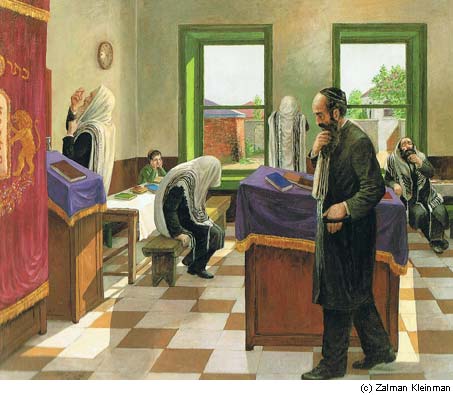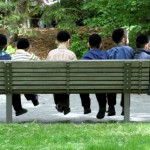Rabbi Shneur Zalman of Liadi The Alter Rebbe Parshat Ki Teze 5565-1805 (2) second version
Indented text by the translator
Cosmic Choreography
Beastly Battle
A parable imparts the secret of the foreknowledge/free choice dilemma. An amusement is arranged for kings and ministers. Wild animals are positioned before the spectators in an arena. The beasts battle each other. The best laughs are obtained as one animal brings down his rival. But the spectacle of animals killing each other isn’t the real source of the observers’ fun. After all, what is especially wondrous if a lion or bear overpowers a weaker opponent?
Rather, chains restrain the lions and bears. This allows their smaller adversaries to overwhelm them. Alternatively, the shackles are removed. Now the lions and bears win. All types of controls are employed to guide the battle. These devious tricks are what provide the principal amusement.
A beast’s victory, therefore, isn’t dependent on it at all. Rather, it is contingent on the will of the contest organizer. Still, the beasts do assist themselves, however minimally; they fight with all their vigor. But it is of no avail; the controls dictate which beast wins. The beast’s strength cannot help him. Conversely, when the chains are removed, the weaker animal’s former safety doesn’t save him.
Spiritual Subterfuge
Now we can understand how this parable applies to God. Job teaches, “Causes reverse its stratagems in order to operate upon the face of the world.” We observe that even though a person’s good inclination overpowers his evil inclination, he remains helpless. “If it weren’t for divine aid,” observes the Talmud, “a person would never succeed in suppressing his evil inclination.”
On the other hand, the evil inclination doesn’t automatically dominate people. It appears only after an individual decides on his own to sin. Then, as the Talmud reveals, “an opening is made for him.” The heavenly court empowers the evil inclination to defile the person.
Conflict Control
It follows that whatever good a person accomplishes isn’t due to his own powers. On the contrary, it is caused by God. Man’s choice to do good is considered only a minor help. The principal determinator of victory or defeat is God.
This, then, is the meaning of “Causes reverse its stratagems.” Sometimes God employs stratagems to strengthen the power of evil over good. On other occasions, He introduces controls which allow good to triumph over evil. What’s more, God’s conflict-control is in a constant state of flux. One day tricks are implemented in a certain manner and the next day they are reversed. This is the frame-up described by the Midrash.
References
Spiritual Subterfuge
“Causes reverse its stratagems in order to operate upon the face of the world.”
The Book of Job, chapter 37, verse 12.
“If it weren’t for Divine aid,” observes the Talmud, “a person would …”
The Babylonian Talmud, Tractate Kidushin, page 30, side b.






